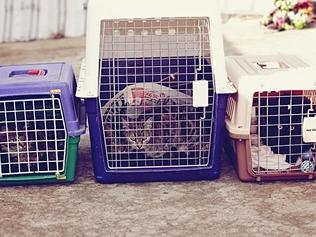May 25, 2014Comments are closed.TAS Cat Laws

The ONLY effect of ‘cat laws’ is to drive more cats into pounds. That is what they are designed to do.
RSPCA Tasmania general manager Peter West said the legislation was a “toothless tiger” that needed better enforcement to ensure people stopped letting their cats get out of control.
“We want to see the legislation toughened up,” he said.
He said the RSPCA’s shelters were seeing an increase in stray and feral cat numbers.
When extra cats start being impounded, those who designed the laws throw up their hands claiming they’re not ‘being enforced’. In fact, the opposite is true – the more cats who are collected for being non-compliant, the better the laws are ‘working’.
There has never been a situation where ad-hoc removal of a tiny fraction of the cat population has lead to a city’s cat ‘problems’ being solved. Which is why cat laws consistently fail.
Only intensive, repeated, poisoning programs could potentially reduce cat numbers, and these are generally seen as impractical in urban areas, around people’s kids and pets.
(Oh, and cats dragging themselves around and dying, not such good PR).
A more humane option, is to not bring these cats into pounds at all. But to instead ask the community to desex as many of them as they can. Educating the community that each and every cat they see – regardless of who owns it – should be desexed. And to help them do it. In just a few years, cat numbers would stabilise, and although cats would still exist, at least the nuisance and much of the neglect of them would be reduced. The community could lean into the problem and it would be greatly improved.
So what to do? The RSPCA is not going to lobby for councils to drop large amounts of poison in people’s backyards. And they make money ($80-$250) for every cat that is brought in from taxpayers. So the answer is simple.
Stay the course.
Claim the ‘cat laws’ they helped design, aren’t a failure at all, but simply that they haven’t been implemented HARD ENOUGH. When will they work? (They can’t tell you, because the answer is never).
They might not be poisoning cats in public, where it would make us feel bad. But they are killing them. Behind the scenes, and for a tidy profit.
See also: Going anti-cat in Tasmania
The crazy upside down world of RSPCA cat welfare
Tasmanian cat laws haven’t driven enough killing, need review